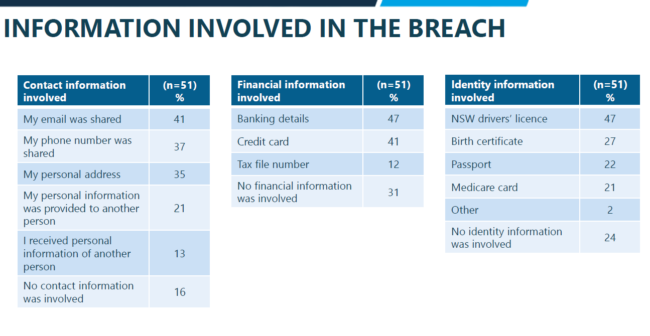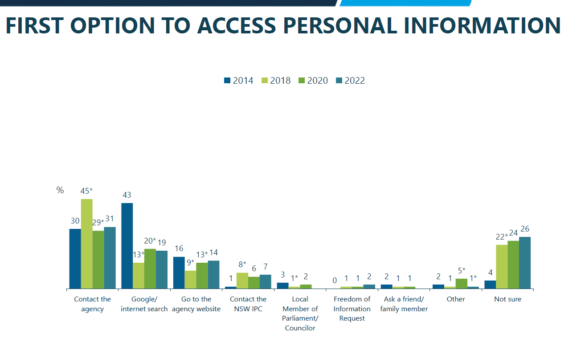NSW citizens are concerned about their data being shared or released inappropriately and want NSW agencies to protect their personal information, a recent survey has revealed.
This week, NSW Privacy Commissioner Samantha Gavel published the results of the Information and Privacy Commission’s latest two-yearly survey of NSW community attitudes towards privacy.

The research, conducted by Woolcott Research, surveyed 800 NSW residents aged over 18 in February 2021 via a phone and online survey.
The survey sought to investigate awareness of privacy, information access and data sharing rights amongst the general public and, for the first time, the IPC also included questions relating to data breaches.
Impact of data breach
The results revealed that 17 per cent or those surveyed had been impacted by a data breach, with 37 per cent of the instances occurring at a NSW government agency.
A variety of contact information was reported to be breached, including email, phone number and personal address.
Banking details and credit card number were the most common forms of financial information involved and almost half of these respondents had their NSW drivers’ licence information breached.

The proportion of respondents who had been affected was higher amongst those aged between 35 to 44 years, according to the survey.
The most common effects of the breach reported by respondents were the need to replace identity documents (40 per cent) and identity theft and fraud (37 per cent).
Other respondents said they needed to change the passwords of online accounts (29 per cent) and 19 per cent of these respondents experienced monetary loss.
More awareness needed
Less than two thirds of respondents were aware of their right to access personal information from at least one of the agencies listed.
They were not aware of their right to lodge a complaint or seek a review with an agency if they feel their privacy has been breached, a decrease from 63 per cent in 2020.
Some respondents (26 per cent) were uncertain about how to access their personal information, a slight increase from 24 per cent in 2020.
Less than half of the respondents (31 per cent) would contact the agency first to access their personal information, with others choosing to find that information online (19 per cent) or go to the agency website (14 per cent).

Response of government agencies
The role of government in protecting citizen’s personal information is still a priority, with 93 per cent of respondents citing this to be important.
The majority of respondents (85 per cent) also believed the government should provide assistance when there is a breach of personal information by a government agency.
However, respondents impacted by a data breach did report that the agency assisted them by informing them of the breach.
Over half of respondents said they were notified within six months of the breach and the agency provided advice on what to do next.
“Agencies build trust in government by building good privacy practices into their decision-making.” – NSW Privacy Commissioner Samantha Gavel
“The survey results show that agencies are already providing support to those affected by a data breach,” Ms Gavel said in a statement.
“However the upcoming Mandatory Notification of Data Breach Scheme will enable agencies to better protect citizens’ privacy and ensure that they have the appropriate mechanisms in place to assist citizens in the event of a breach.”
Under planned changes to state privacy laws, this scheme will require the state government to notify anyone affected by a cyber-attack or data breach of its records.
The public expects agencies to use the information that it collects from them in an appropriate manner and to keep it secure, Ms Gavel said.
“Agencies build trust in government by building good privacy practices into their decision-making, as well as the design and structure of their information systems, business processes, products and services.
“Having the correct systems in place will lead to better outcomes for all NSW citizens and I look forward to working with agencies to improve upon future results.”





Surprise, Surprise… The total volume and recency of data breaches [of Gov] is exponential, which is not acceptable!
Each time we see expansion and collection of our data, I cringe. Recently, the data from QR Codes, was also breached. Additionally, the Gov collected and kept this data for far greater periods than agreed! So, ‘data hesitancy’ is growing, and so is distrust of Gov data collection as a result of this and of data breaches.
Rather than simply sending out bi-annual surveys, the Gov of the day NEEDS to actually do a much better job and ensure data security is a strategic priority.. With the geopolitical situation as it is, data breaches are occurring daily. Time for Gov to improve and start servicing the people much better..